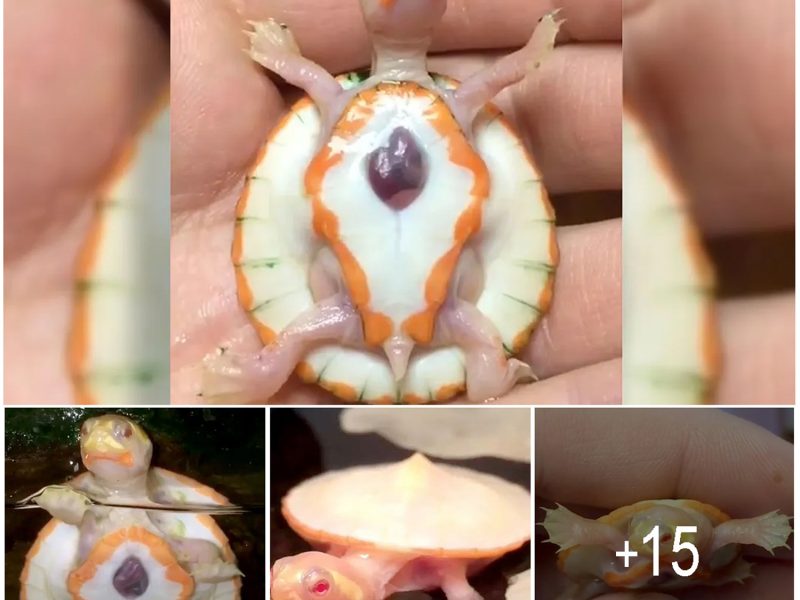There are more than 10,000 bird species on Earth. From those that are large like an ostrich to those that are as tiny as a bee hummingbird, all feathered creatures are charming in their own way. But the special coloring, plumage, or spectacular mating rituals make some birds so unique you won’t believe they’re not made up.
That’s why Bright Side made a list of some of the most impressive bird species that roam over our lands and waters. Let’s have a look!
1. The resplendent quetzal

Found in the tropical forests of Central America, the resplendent quetzal got this name because many see it as a truly magnificent bird. It tends to live alone and only pairs up when mating. During this period, male quetzals grow tail feathers that create a stunning train that can be up to 3 ft long.
2. The blue-jay perched bird

The blue-jay perched bird is also known as a songbird. Blue-jays are commonly found in North America and are known to be local alarm clocks for other birds. They will also issue long cries to warn other creatures if they see that a predator is near.
3. The Andean emerald hummingbird

The Andean emerald is found in South America and is one of the more than 300 hummingbird species in the world. These birds enjoy a solitary life, but they gather with other hummingbirds at flowering trees also known as feeding assemblies.
4. The golden pheasant

The golden pheasant, which is also known as the Chinese pheasant, is a unique bird found mostly in East Asia. These feathered creatures are very shy and often hide in dark places in the forests they live in.
5. The greater bird-of-paradise

The greater birds-of-paradise are the largest members of the family Paradisaea, who live in southwest New Guinea and the Aru Islands in Indonesia. They are usually polygynous, which means that one male mates with multiple female mates. Some birds-of-paradise have enormous head plumes or other distinctive ornaments, such as feathers that shimmer.
6. The Himalayan bluetail

The Himalayan bluetail, also called the orange flanked bush-robin, is a small bird that breeds in the Himalayas. It travels short distances and prefers to lives in wet areas.
7. The African crane bird

These majestic grey-colored birds are monogamous and mate for life. The crane is quite famous in Sub-Saharan Africa and even a sacred symbol for some countries. It is also the national symbol of Uganda and it’s featured on the country’s flag.
8. The malachite kingfisher

The tiny bright metallic blue bird that is nicknamed river kingfisher, lives in Sub-Saharan Africa. The malachite kingfisher lives near ponds and enjoys flying quite fast over slow moving waters. Its short wings become just a mere blur when they are in motion.
9. The Victoria crowned pigeon

The graceful bird, with its fancy lace-like crest, was named in remembrance of the great 19th-century British monarch Queen Victoria. This bird is very social and also has the special ability to produce milk for its little ones, known as “crop milk.”
10. The Atlantic puffin

These birds are also nicknamed sea parrots and they usually gather around the North Atlantic ocean. Puffins are true flying masters, as they can flap their wings up to 400 times a minute and speed through the air at almost 55 miles an hour. They are also excellent swimmers and they can even dive down to around 197 ft underwater to look for their preferred fish.
11. The Mandarin duck

The Mandarin duck has a deep centered meaning in East Asian cultures. These birds are admired and appreciated significantly due to their marital loyalty and compassion.
12. The lilac-breasted roller

The colorful lilac-breasted roller is the unofficial national bird of Kenya. The lilacs are surprisingly brave, they can reside and adapt to different environments, and even survive well after natural disasters. During a bush fire, they have no fear of hunting near the edges of the fire.
13. The gouldian finch

The gouldian is one of Australia’s most colorful birds and the only grassfinch that nests in tree hollows or holes made in termite mounds. It is a pretty silent bird that only makes a whistling sound from time to time.
14. The Indian roller

Best known for their charismatic aerobatic performances, the males of this species put on a show during their breeding season. The Indian roller has been chosen as the state bird by several states in India. Its favorite food consists of frogs, lizards, crickets, and moths.
15. The Andean cock-of-the-rock

The radiant orange bird has a tendency to build its nests on rocks, hence the name cock-of-the-rock. It is the national bird of Peru and one of the most popular birds of the Andes Mountains. Its striking features make it attractive to predators, like jaguars and pumas.
16. The turquoise-browed motmot

Found in Guatemala, turquoise-browed motmots don’t build ordinary nests in trees, they dig burrows in the ground. A fun fact about these birds is how they enjoy just standing and moving their tails like an old grandfather clock.
17. The Eurasian hoopoe

Eurasian hoopoes have some of the most stunning black and white wings. The birds have a special courtship practice that revolves around food. This happens when the male hoopoe offers insects to the female for her to eat them.
18. The northern cardinal

The northern cardinal is a tiny delicate bird that is the size of a teacup and lives for around 15 years. Only the males have the brilliant red feathers, for which their species is known. The color is very important because it makes males more noticeable to females, so it leads to successful mating.
19. The secretary bird

The bird got its name in the 1800s from Europeans, because back then male secretaries wore grey tailed coats, knee-length pants and they carried goose-quill pens behind their ears and the long legged bird shared many of those features. The secretary bird is mostly found in Africa and has the longest legs of any bird of prey.
20. The bee-eater bird

These birds are known to fearlessly remove bees and other insects from the air. Using their curved beaks, they strike the victim’s head, rub it on a surface to remove the toxins, and eat it.
Have you ever captured any fascinating photos of the above birds or any of your favorites? If so, please share them with us!

